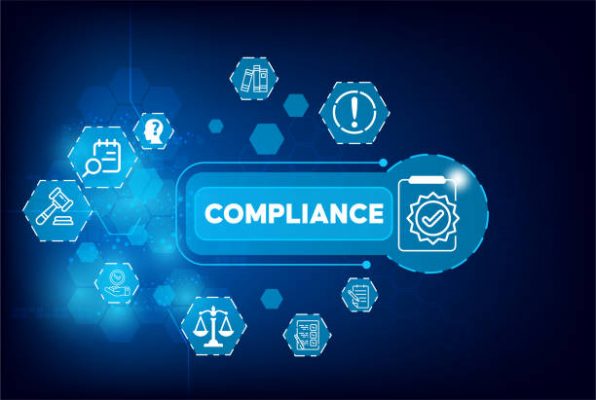
- March 22 2025
- SFI Solution Team
How SaaS Integration Enhances Data Governance and Compliance
In the current digital-centric landscape, businesses are progressively embracing Software as a Service (SaaS) solutions to optimize their operations, boost productivity, and elevate customer experiences. Nevertheless, as the amount of data processed and stored across various SaaS applications continues to rise, maintaining strong data governance and adhering to regulatory requirements has emerged as a critical concern for organizations. The integration of SaaS is essential in tackling these issues, equipping businesses with the tools needed to manage data efficiently while complying with industry standards.
What is Data Governance?
Data governance refers to the set of policies, processes, and standards that organizations implement to ensure data integrity, security, and availability. It encompasses data quality, consistency, access control, and lifecycle management to support accurate decision-making and regulatory adherence.
What is Compliance?
Compliance involves adhering to industry-specific regulations, standards, and legal requirements governing data privacy and security. Examples of such regulations include :
-
General Data Protection Regulation (GDPR) – Ensures data protection and privacy for individuals within the European Union.
-
Health Insurance Portability and Accountability Act (HIPAA) – Protects sensitive patient health information in the healthcare sector.
-
California Consumer Privacy Act (CCPA) – Grants consumers greater control over their personal data.
-
Sarbanes-Oxley Act (SOX) – Mandates financial transparency and accountability.
Failure to comply with these regulations can result in hefty fines, reputational damage, and legal consequences.
The Role of SaaS Integration in Data Governance and Compliance
SaaS integration enables businesses to connect disparate cloud-based applications, ensuring seamless data exchange, enhanced security, and regulatory adherence. Below are the key ways SaaS integration enhances data governance and compliance :
1. Centralized Data Management
With multiple SaaS applications in use, data is often siloed across various platforms. SaaS integration centralizes data from different sources into a single repository, allowing organizations to implement consistent governance policies. A unified data environment minimizes errors, enhances accuracy, and ensures compliance with regulations that require transparency in data handling.
2. Enhanced Data Security and Access Control
SaaS integration provides organizations with robust authentication and access control mechanisms. By integrating with Identity and Access Management (IAM) systems, businesses can enforce role-based access controls (RBAC), ensuring that only authorized personnel can access sensitive data. This helps in mitigating security breaches and aligns with compliance requirements like GDPR and HIPAA.
3. Automated Compliance Monitoring
Regulatory compliance requires continuous monitoring and reporting of data activities. SaaS integration enables businesses to implement automated monitoring tools that track data movement, user activities, and access logs in real-time. These automated compliance checks reduce manual efforts, improve efficiency, and help organizations maintain adherence to legal standards effortlessly.
4. Improved Data Auditing and Reporting
Audit trails are essential for demonstrating compliance with regulatory bodies. Integrated SaaS solutions facilitate comprehensive data auditing by capturing and storing logs of data transactions, modifications, and access history. This transparency not only helps in compliance audits but also strengthens data security measures.
5. Data Encryption and Privacy Protection
SaaS integration supports end-to-end encryption and data masking techniques, ensuring that sensitive information remains secure during transit and storage. By implementing encryption protocols such as TLS and AES, businesses can safeguard customer data and meet privacy requirements stipulated by laws like GDPR and CCPA.
6. Scalability and Flexibility in Compliance Management
As regulatory landscapes evolve, organizations need agile solutions that can adapt to new compliance requirements. SaaS integration allows businesses to scale their compliance frameworks by integrating new tools and regulations as needed, ensuring long-term sustainability and legal adherence.
7. Seamless Incident Response and Risk Management
In the event of a data breach or compliance violation, a well-integrated SaaS ecosystem enables rapid incident response. By integrating with Security Information and Event Management (SIEM) tools, businesses can detect anomalies, trigger alerts, and implement corrective actions to mitigate risks swiftly.
Best Practices for Effective SaaS Integration in Data Governance and Compliance
To maximize the benefits of SaaS integration in governance and compliance, organizations should consider the following best practices :
-
Conduct a Data Inventory : Identify all data sources, classify sensitive information, and map data flows to ensure comprehensive oversight.
-
Choose Compliance-Ready SaaS Solutions : Opt for vendors that offer built-in compliance features, such as data encryption, audit logging, and role-based access controls.
-
Implement API Security Measures : Use secure APIs with authentication protocols like OAuth and SAML to protect data exchange between applications.
-
Regularly Update Compliance Policies : Stay informed about evolving regulations and update governance frameworks accordingly.
-
Train Employees on Data Compliance : Educate staff on best practices for data handling, security, and compliance to minimize risks.
Conclusion
SaaS integration is a game-changer for organizations striving to enhance data governance and maintain regulatory compliance. By centralizing data management, strengthening security controls, automating compliance monitoring, and improving audit capabilities, businesses can navigate the complexities of modern data regulations effectively. Investing in the right SaaS integration strategy not only safeguards sensitive information but also builds trust with customers and regulatory authorities.
With the right approach, businesses can leverage SaaS integration as a competitive advantage, ensuring data governance excellence while staying compliant in an ever-evolving regulatory landscape.
Previous Post